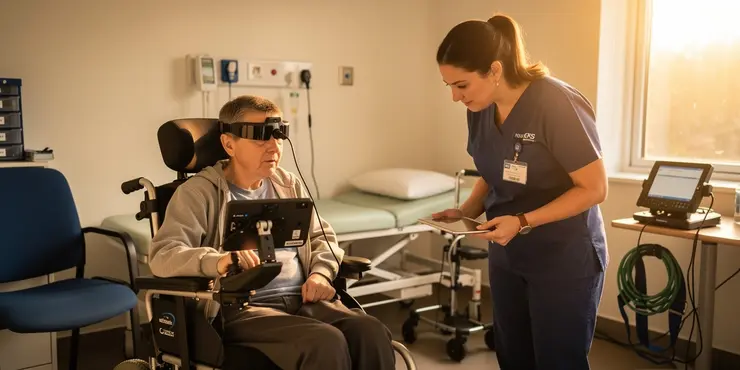
Find Help
More Items From Ergsy search
-
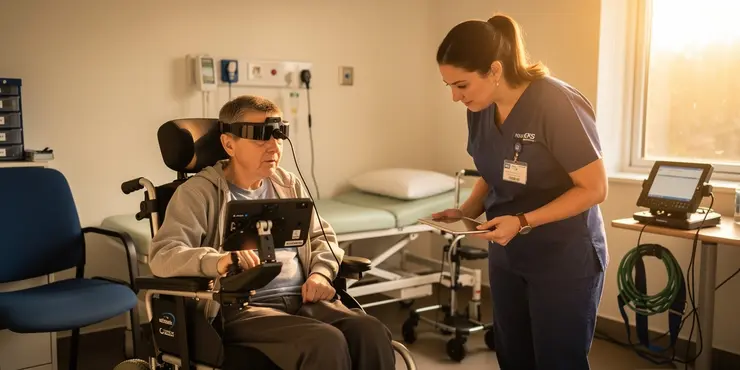
What assistive devices can help people with motor neurone disease?
Relevance: 100%
-
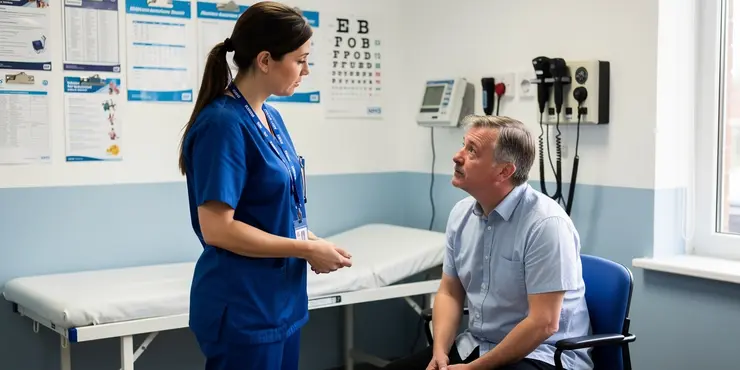
What is motor neurone disease?
Relevance: 81%
-
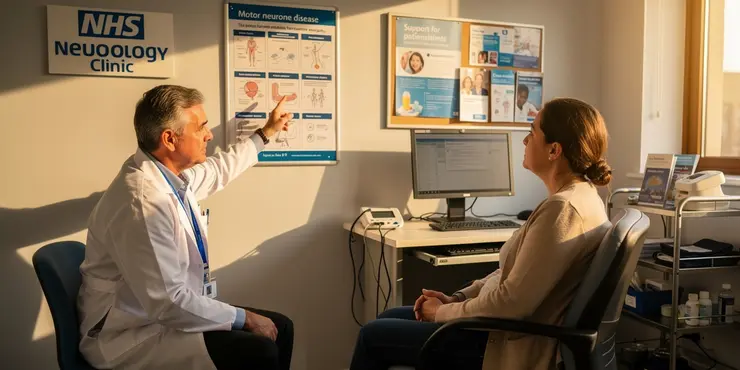
Is there a cure for motor neurone disease?
Relevance: 73%
-
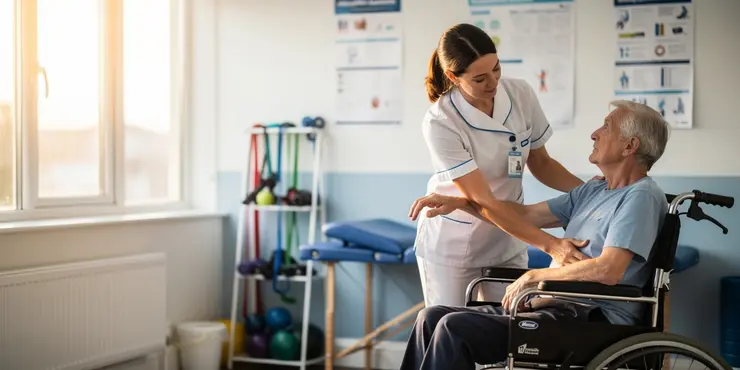
What treatments are available for motor neurone disease?
Relevance: 73%
-
Are there different types of motor neurone disease?
Relevance: 72%
-
Is motor neurone disease hereditary?
Relevance: 72%
-
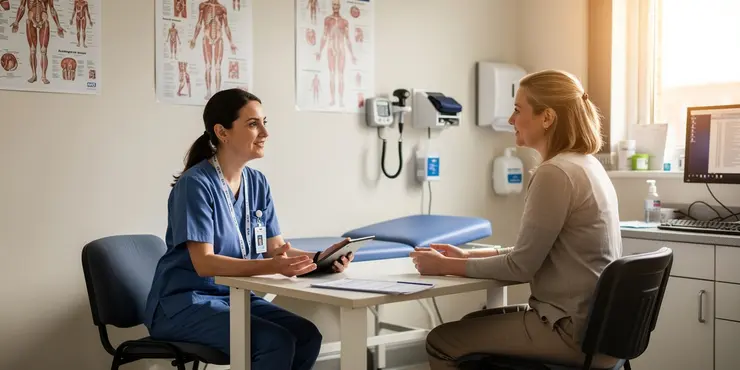
What causes motor neurone disease?
Relevance: 71%
-
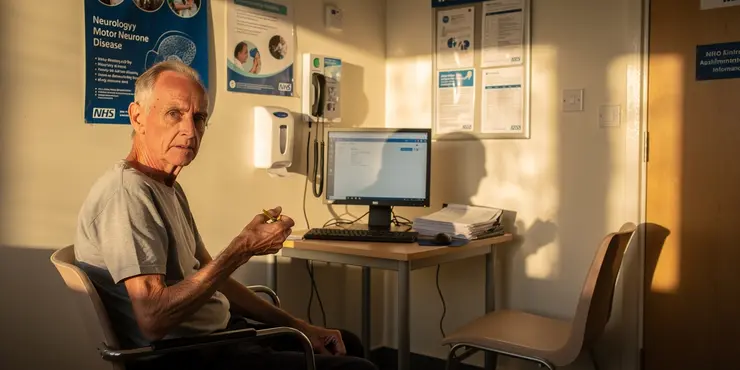
How does motor neurone disease affect the body?
Relevance: 68%
-
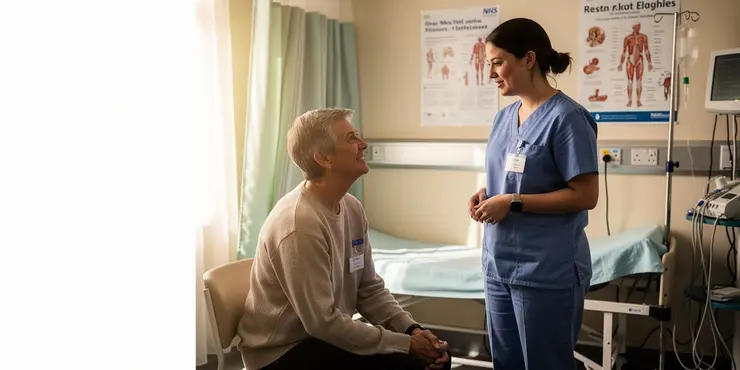
What are the primary symptoms of motor neurone disease?
Relevance: 66%
-
How does motor neurone disease affect speech?
Relevance: 66%
-
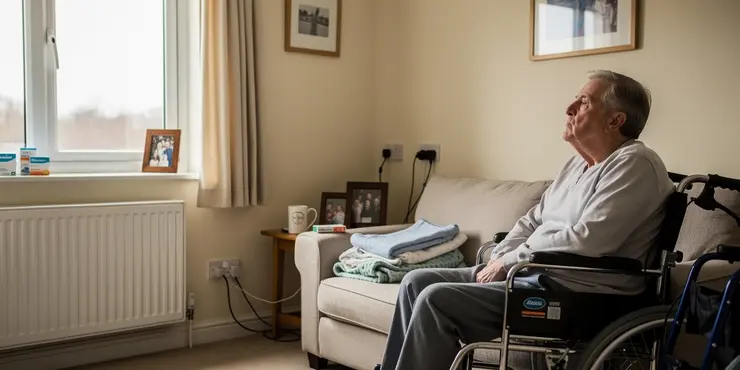
How is breathing affected by motor neurone disease?
Relevance: 66%
-

Motor neurone disease Julie's story | NHS
Relevance: 65%
-
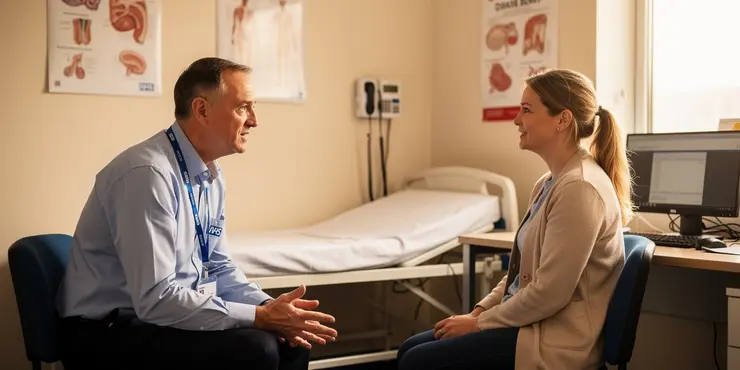
How is motor neurone disease diagnosed?
Relevance: 65%
-
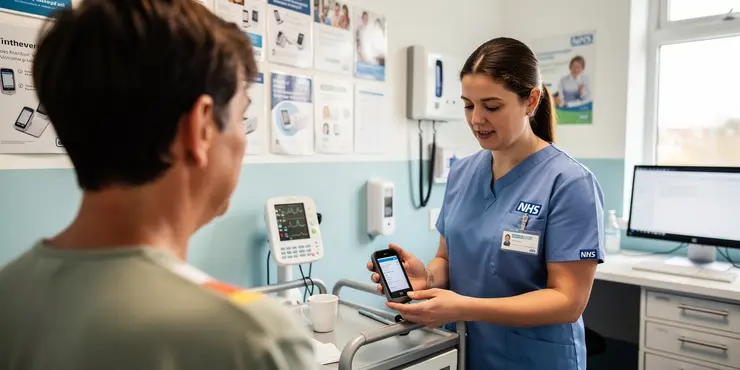
Voice banking service helps people live with motor neurone disease
Relevance: 62%
-
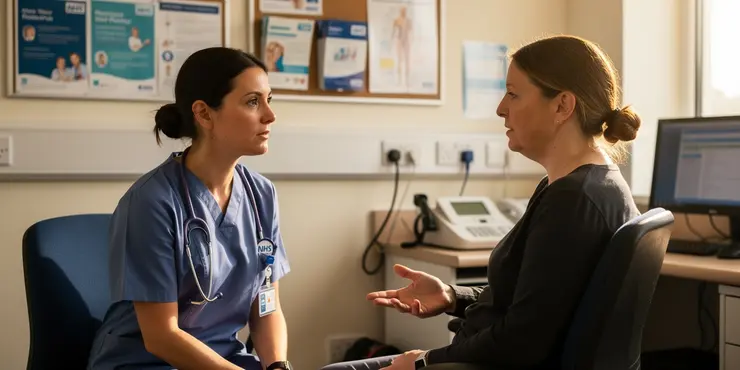
What role do genetics play in motor neurone disease?
Relevance: 62%
-
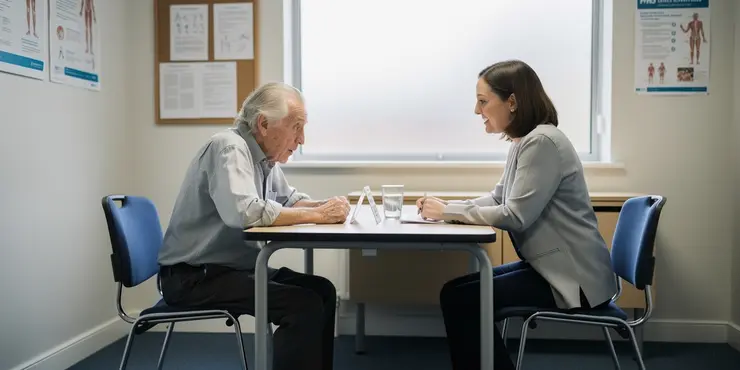
How does motor neurone disease impact swallowing?
Relevance: 61%
-
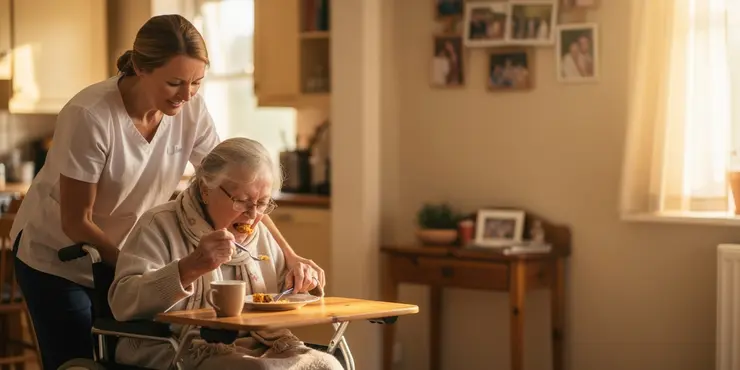
How can caregivers support someone with motor neurone disease?
Relevance: 60%
-
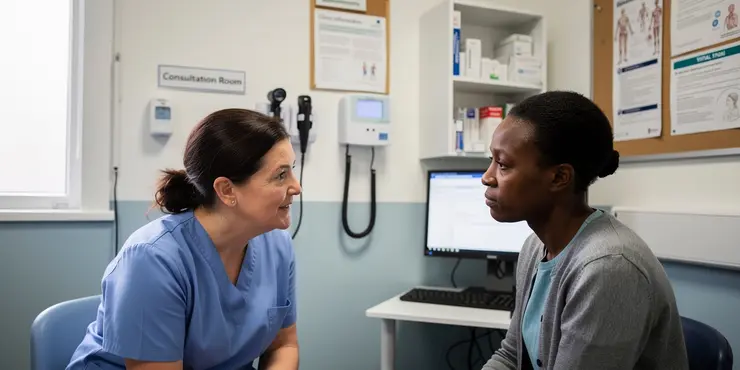
What is the life expectancy after a motor neurone disease diagnosis?
Relevance: 59%
-
Can lifestyle changes impact motor neurone disease progression?
Relevance: 58%
-
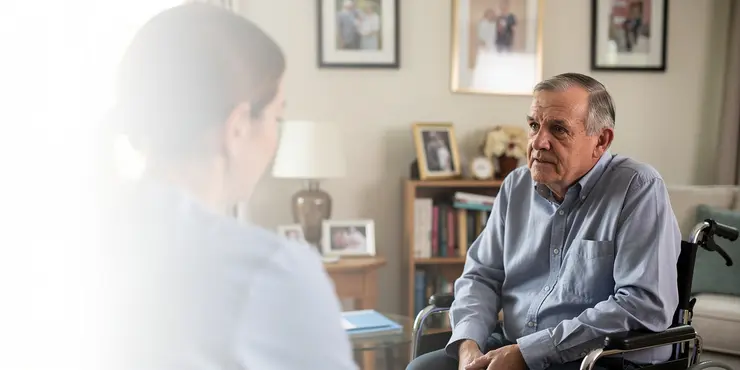
Are there support groups for individuals with motor neurone disease?
Relevance: 50%
-
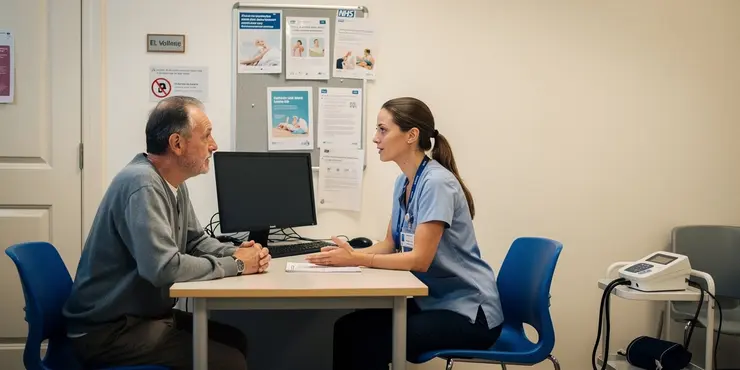
Who is at risk for motor neurone disease?
Relevance: 47%
-
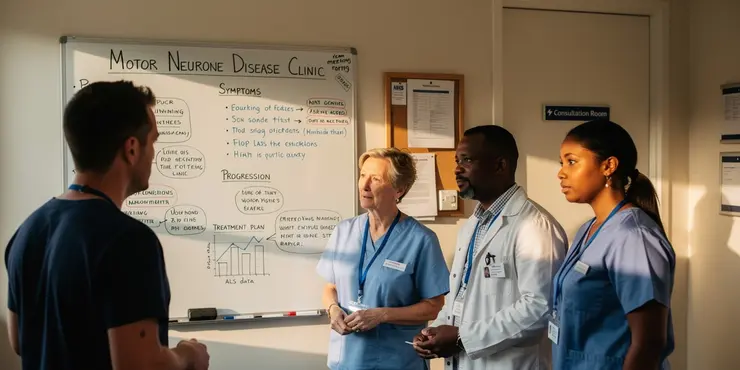
What research is being done on motor neurone disease?
Relevance: 46%
-
How does Huntington's disease affect movement?
Relevance: 33%
-
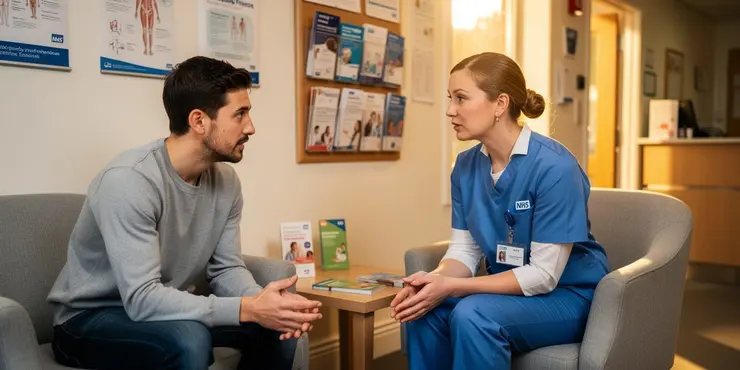
What is MND?
Relevance: 31%
-
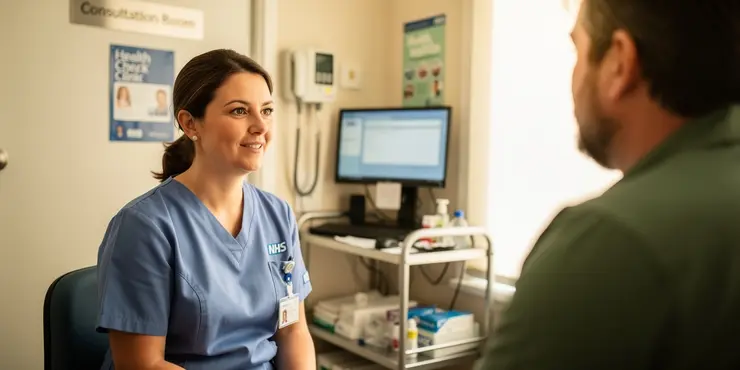
What is a flutter device?
Relevance: 29%
-
What is Parkinson's disease?
Relevance: 29%
-
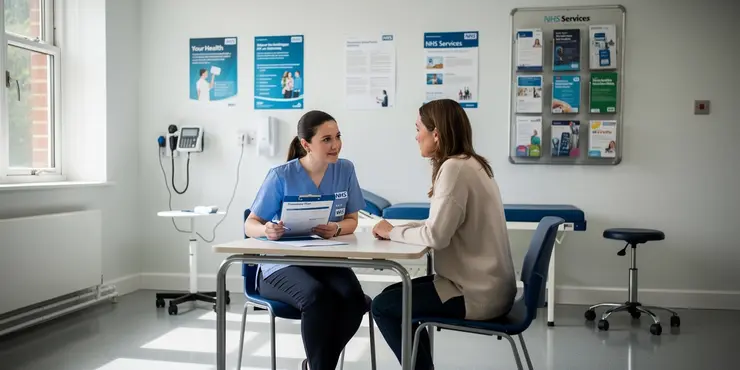
What happens if someone loses access to their mobile device?
Relevance: 27%
-
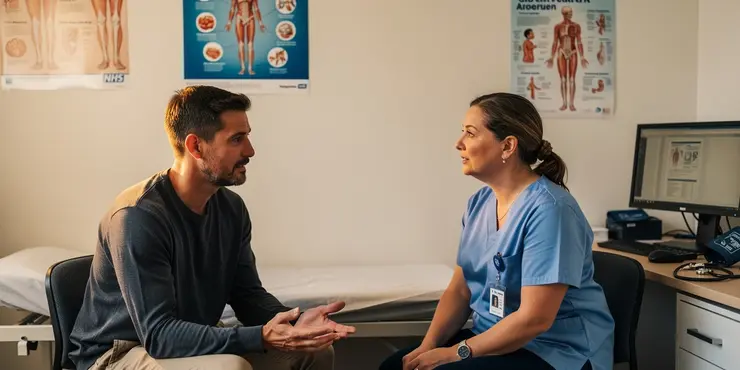
What causes Huntington's disease?
Relevance: 26%
-

Is Huntington's disease fatal?
Relevance: 25%
-
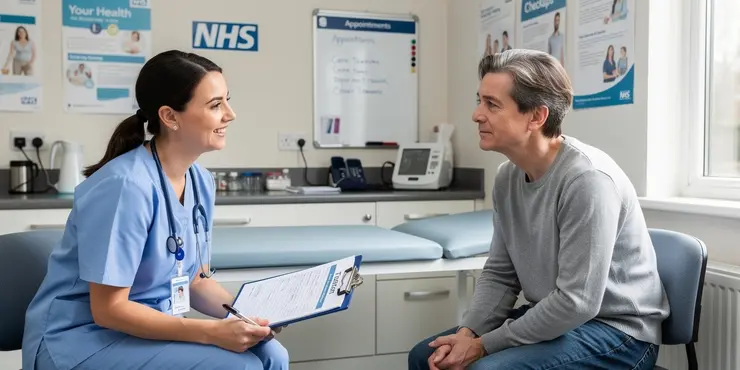
Is a TV license required for watching TV on a mobile device?
Relevance: 23%
-
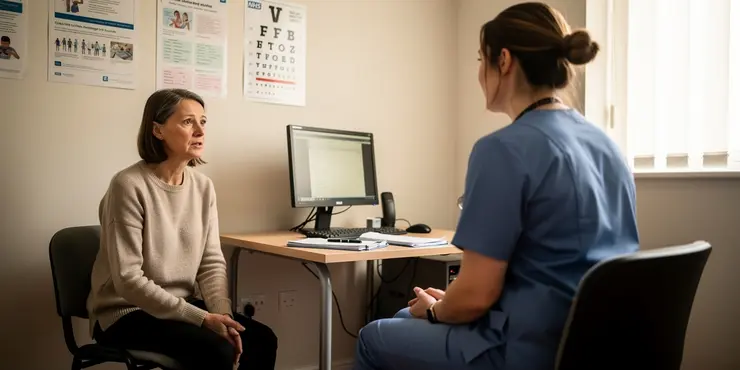
What are the symptoms of Huntington's disease?
Relevance: 23%
-
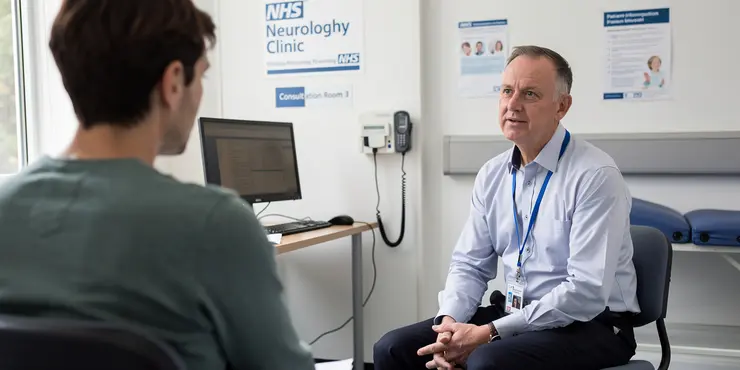
What kinds of specialists are involved in treating Huntington's disease?
Relevance: 23%
-
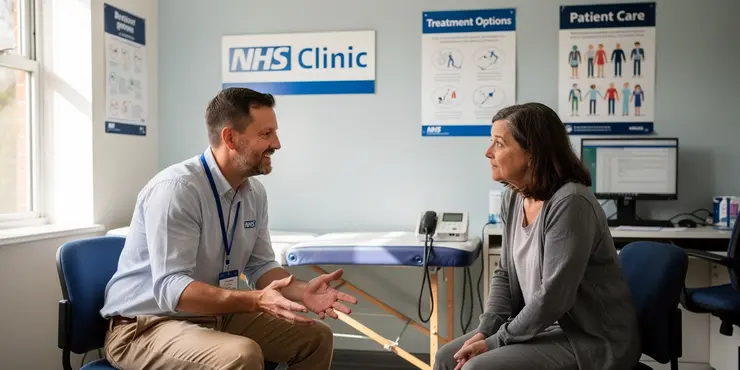
What research is being done on Huntington's disease?
Relevance: 23%
-
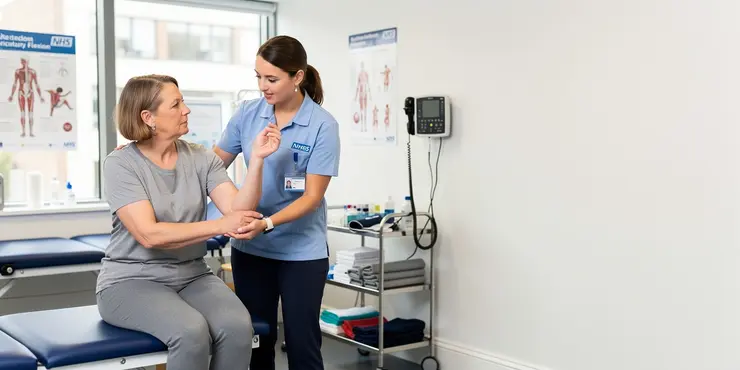
Frozen Shoulder Assisted Flexion
Relevance: 22%
-
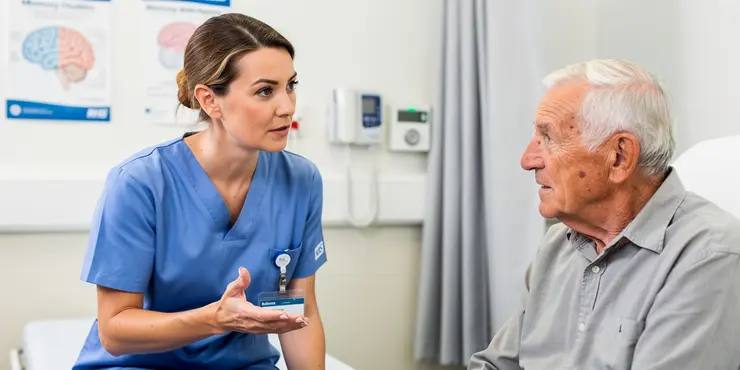
What causes Alzheimer's disease?
Relevance: 21%
-
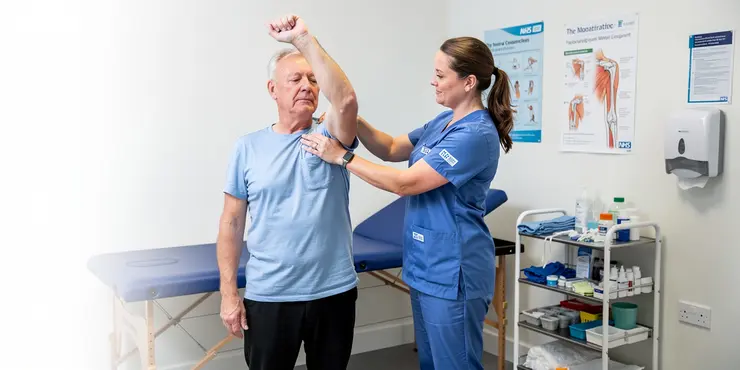
Frozen Shoulder Assisted Abduction
Relevance: 21%
-
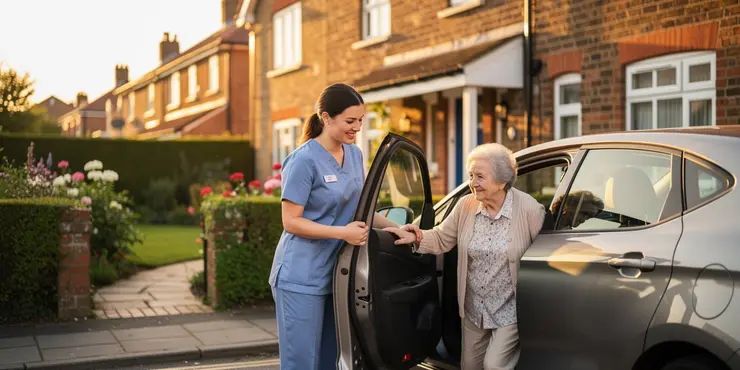
Do live-in caregivers assist with transportation?
Relevance: 21%
-
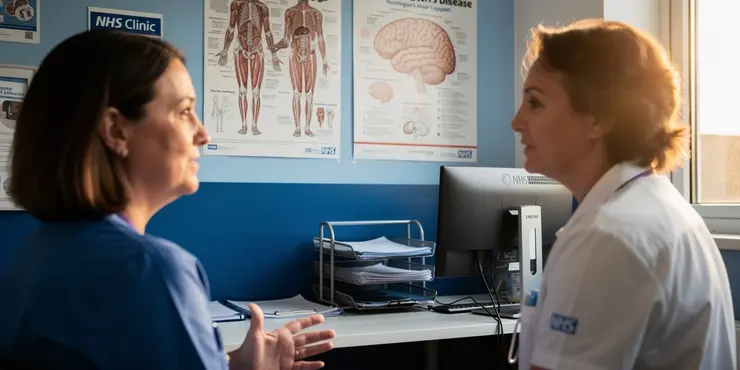
What is Huntington's disease?
Relevance: 20%
-
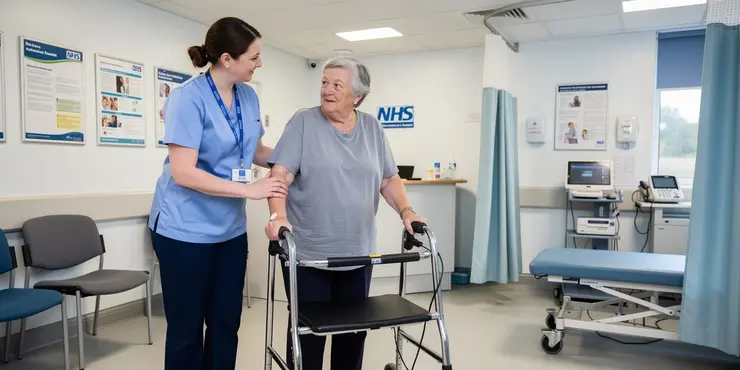
Are there any financial assistance programs for mobility equipment?
Relevance: 20%
-

Can Huntington's disease be prevented?
Relevance: 20%
Introduction to Motor Neurone Disease
Motor Neurone Disease (MND) is a progressive condition that affects the motor neurons in the brain and spinal cord. This leads to muscle weakness and a decline in physical functionality. As the disease progresses, individuals may require assistance to maintain their independence and quality of life.
Mobility Aids
Mobility aids are crucial for individuals with MND to navigate their environment safely. Wheelchairs, both manual and powered, can provide independence and ease of movement. Electric wheelchairs are particularly beneficial for people with more severe mobility challenges. Walking aids, such as walking sticks or rollators, may be recommended during the early stages of MND. These aids provide balance and support, reducing the risk of falls.
Communication Devices
As MND affects speech and communication, assistive technologies can be incredibly valuable. Text-to-speech devices and software allow individuals to communicate more effectively. Eye-tracking technology can enable communication through eye movements, which is beneficial when manual dexterity is limited. Additionally, speech-generating devices that convert typed text into spoken words can help those with deteriorated speech abilities.
Home Adaptation Tools
Home adaptations can significantly enhance the living conditions of those with MND. Equipment such as stairlifts, adapted bathrooms with grab rails, and adjustable beds can improve safety and independence. Environmental control systems enable people to control lights, heating, and other home devices using voice commands or switches, which is particularly useful as motor skills decline.
Personal Care Aids
Personal care aids such as dressing sticks, adaptive clothing, and easy-grip cutlery can support daily activities. These tools help people maintain a level of independence and reduce reliance on caregivers. Shower chairs and bath lifts can facilitate safe and comfortable bathing experiences.
Conclusion
Assistive devices play a crucial role in supporting those with Motor Neurone Disease, enhancing their quality of life by promoting independence and safety. It is important for individuals, their families, and carers to work closely with healthcare professionals in the UK to select and customise the most appropriate devices and technologies. Early intervention with suitable aids can make a significant difference in managing the challenges associated with MND.
What is Motor Neurone Disease?
Motor Neurone Disease, or MND, is a serious illness. It makes muscles weak and hard to move. People with MND need help to stay independent and happy.
Tools to Help You Move
People with MND use special tools to move around safely. Wheelchairs help them go places on their own. Electric wheelchairs are good for those who find it very hard to move. At the start, walking sticks or rollators can help with balance and stop falls.
Devices to Help You Talk
MND can make talking difficult. Special devices can help. Text-to-speech tools let you type and then speak your words. Eye-tracking helps you communicate with just your eyes. There are also machines that say the words you type out loud.
Tools to Make Your Home Better
Changing your home can help if you have MND. You can use stairlifts, special bathrooms, and beds that move up and down. There are systems that let you control lights and heating with your voice. This helps when moving is hard.
Tools for Daily Care
Daily care tools help with things like dressing and eating. Dressing sticks, special clothes, and easy-to-hold cutlery make life easier. Shower chairs and bath lifts help you stay clean safely.
Summary
Special devices help people with Motor Neurone Disease live better. These tools help keep them safe and independent. It is important to work with healthcare experts in the UK to find the best devices. Starting early with the right tools can make life easier for people with MND.
Frequently Asked Questions
What are assistive devices for motor neurone disease?
Assistive devices for motor neurone disease are tools and equipment designed to help individuals maintain independence and improve their quality of life as the disease progresses.
How can communication devices assist someone with motor neurone disease?
Communication devices, such as speech-generating devices and communication apps, can help individuals with motor neurone disease communicate effectively when speech becomes difficult.
Are there mobility aids suitable for people with motor neurone disease?
Yes, mobility aids such as wheelchairs, walkers, and scooters can assist individuals with motor neurone disease in moving around more easily.
What role do adaptive eating utensils play for someone with motor neurone disease?
Adaptive eating utensils, like spoons and forks with larger handles or special grips, can help individuals with motor neurone disease eat more independently.
Can home modifications help individuals with motor neurone disease?
Yes, home modifications like installing ramps, stair lifts, and grab bars can greatly assist individuals with motor neurone disease in navigating their homes safely.
What type of seating support can benefit people with motor neurone disease?
Seating supports such as specialized cushions and adjustable chairs can provide comfort and support for individuals with motor neurone disease.
Are there specific devices to help with daily hygiene for someone with motor neurone disease?
Yes, devices like shower chairs, raised toilet seats, and long-handled bathing aids can assist with personal hygiene for those with motor neurone disease.
How can technology assist individuals with motor neurone disease?
Technology like smart home devices, voice-activated systems, and computer accessibility tools can help individuals with motor neurone disease manage daily tasks more easily.
What are some examples of environmental control units for motor neurone disease patients?
Environmental control units can include devices that allow individuals to control lights, TV, and other home appliances using switches or voice commands.
Can physical therapy equipment be beneficial for motor neurone disease?
Yes, physical therapy equipment such as balance trainers, Therabands, and exercise balls can help maintain physical function for as long as possible.
What types of orthotic devices might be used by someone with motor neurone disease?
Orthotic devices, such as braces and splints, can support weakened limbs and joints, aiding in mobility and reducing discomfort.
Are there foot care solutions that assist those with motor neurone disease?
Yes, solutions like foot drop supports and custom orthopedic shoes can help individuals with motor neurone disease maintain mobility and prevent falls.
How can transfer aids help caregivers of people with motor neurone disease?
Transfer aids like hoists, transfer boards, and sliding sheets can make it easier and safer for caregivers to assist individuals with transfer between surfaces.
What types of beds or mattresses are recommended for those with motor neurone disease?
Adjustable beds and pressure-relieving mattresses can improve comfort and prevent pressure sores for those with motor neurone disease.
Are there devices to assist with respiratory support for motor neurone disease?
Yes, devices such as non-invasive ventilation (NIV) and cough assist machines can support respiratory health in individuals with motor neurone disease.
Can wearable technology be beneficial for motor neurone disease patients?
Wearable technology, like fall detection devices and health monitoring systems, can provide safety and health insights for individuals with motor neurone disease.
What role do customizable controls play in assistive devices for motor neurone disease?
Customizable controls allow individuals with motor neurone disease to adjust assistive devices to their specific needs, improving usability and effectiveness.
Are there pain management aids for individuals with motor neurone disease?
Yes, aids like heat pads, massage devices, and specialized pillows can help manage pain and discomfort associated with motor neurone disease.
What are some funding options for purchasing assistive devices for motor neurone disease?
Funding options might include government programs, insurance coverage, non-profits, grants, and community organizations that support individuals with disabilities.
How can support groups help individuals using assistive devices for motor neurone disease?
Support groups provide emotional support, share tips on using assistive devices effectively, and connect individuals with additional resources and expertise.
What are helpful tools for people with motor neurone disease?
Motor neurone disease is a condition that affects how the brain talks to the muscles. This makes it hard to move. People with this condition can use special tools to help them.
These tools might help with:
- Walking and moving around
- Talking and communicating
- Eating and drinking
- Doing daily activities, like getting dressed
Some tools are simple, like a walking stick or special cutlery. Others might be machines that help you talk.
It's important to talk to a doctor or therapist. They can help find the right tools to make life easier.
Assistive devices for motor neurone disease are tools and equipment. They help people stay independent and make life better as the disease gets worse.
How can talking devices help someone with motor neurone disease?
People with motor neurone disease might find it hard to talk. Talking devices can help them speak. These devices are like special computers or tablets.
Here’s how they help:
- You can type messages, and the device speaks it out loud.
- Some devices use pictures or buttons to make talking easier.
- They can learn your voice and help you speak faster.
If you have trouble using these devices, ask for help. A speech therapist can teach you how to use them. They can make it easier for you to talk with your family and friends.
Talking machines and apps can help people with motor neurone disease talk more easily when speaking gets hard.
Can people with motor neurone disease use tools to help them move?
Yes, things like wheelchairs, walkers, and scooters can help people with motor neurone disease move around more easily.
How do special eating tools help people with motor neurone disease?
People with motor neurone disease can find it hard to eat. Special eating tools can make eating easier for them. These tools are shaped to help grip better. They are not heavy, so people can hold them easily.
Some tools have special handles that help hands stay steady. This stops food from spilling. Other tools have clips to hold food in place.
Ask an occupational therapist for advice. They know which tools can help the most. You can also look for online videos that show how to use these tools.
Special spoons and forks can help people with motor neurone disease eat by themselves. These utensils have big handles or special grips that make them easier to use.
Can changing your home help people with motor neurone disease?
Changing things at home can help people who have motor neurone disease.
Here are some ways to make it easier:
- Make doorways wider for wheelchairs.
- Add ramps instead of stairs.
- Use handrails in bathrooms and hallways.
- Put grab bars near the toilet and shower.
These changes can help people move around safely.
Talk to experts who can help you change your home.
Yes, changes at home like putting in ramps, stair lifts, and grab bars can help people with motor neurone disease move around their homes safely.
Tips or tools to help:
- Ask a helper or friend for support.
- Use simple checklists to see what changes are needed.
- Look for pictures or videos that show how to make these changes.
What kind of seating can help people with motor neurone disease?
People with motor neurone disease may find special chairs helpful. These chairs can give support and make sitting easier.
Here are some things to think about:
- Soft Cushions: These can make seats more comfortable.
- Back Support: A chair with good support for the back can help.
- Adjustable Chairs: Chairs that can be moved up and down or can tilt can help find a comfortable position.
For more help, an occupational therapist can show you the best chairs to use.
Special seats and pillows can help people feel comfortable and supported. These are helpful for people with a sickness called motor neurone disease.
Can special tools help people with motor neurone disease stay clean?
Yes, things like shower chairs, raised toilet seats, and long-handled tools for washing can help people with motor neurone disease stay clean.
How can computers and gadgets help people with motor neurone disease?
People with motor neurone disease may have trouble moving and speaking. Computers and gadgets can help make things easier:
- Talking Tools: Special apps can help people talk.
- Moving Help: Gadgets can help people move things with their eyes or voice.
- Daily Tasks: Computers can help with things like switching on the lights or watching TV.
Tools like speech buttons or eye trackers are very helpful. Ask a doctor for more ideas and support.
Smart home gadgets, voice-controlled devices, and special computer tools can help people with motor neurone disease do everyday things more easily.
What tools can help people with motor neurone disease control things around them?
People with motor neurone disease may use special tools to do things at home. Here are some examples:
- Remote Controls: They can turn on the TV or lights.
- Smart Home Devices: Devices like Alexa can help by listening to voice commands.
- Switches and Buttons: Special buttons can help when it's hard to move.
- Apps on Tablets: Tablets have special apps to help control things.
These tools make life easier and help people stay independent.
Environmental control units are special tools. They help people turn on lights, use the TV, and control home gadgets with switches or by talking to them.
Can using physical therapy tools help with motor neurone disease?
Motor neurone disease is a sickness that makes it hard to move muscles.
Using special tools for exercise can help people feel better and move more easily.
These tools might include things like exercise bikes, stretch bands, and weights.
It is important to talk to a doctor or therapist to get the right tools.
They can help you use these tools safely and correctly.
Getting support from family, friends, or support groups can also help a lot.
Yes, things like balance trainers, Therabands, and exercise balls can help keep your body working well for a long time.
What kinds of special devices can help someone with motor neurone disease?
Motor neurone disease makes muscles weak. Special devices can help. These devices are called orthotics. They help support the body.
Here are some devices that might help:
- Braces: Hold weak arms or legs steady.
- Splints: Keep hands or feet in the right position.
- Foot supports: Help with walking and standing.
Helpful tools:
- Pictures of the devices to understand how they work.
- Talking to a doctor or therapist for advice.
- Using simple apps or videos to see how to use the devices.
Braces and splints are special tools that help hold your arms or legs. They can make weak arms or legs stronger. This makes it easier to move and hurts less.
Can people with motor neurone disease get help for foot care?
Yes, there are ways to help. People with motor neurone disease can find foot care a bit hard.
Here are some things that can help:
- Ask a podiatrist for advice. They are foot doctors.
- Use special shoes or socks that are comfy and help feet stay in place.
- Try tools that make it easier to cut toenails, like easy-grip clippers.
- Ask someone for help if it's hard to do foot care alone.
If you want, you can use picture guides or videos to learn more about foot care.
Yes, special tools can help people move and walk safely if they have motor neurone disease. These tools include foot drop supports and special shoes. They help people stay steady on their feet and not fall down.
How can movement tools help people who take care of someone with motor neurone disease?
Movement tools can make moving and lifting easier. They help caregivers move someone safely. This can save time and stop injuries.
Here are a few tools that can help:
- Slide Sheets: These are like soft fabric that help slide someone on a bed.
- Hoists: These lift people up carefully. They are good for moving someone from a bed to a chair.
- Walking Frames: These give support to help someone walk. They are like strong sticks with handles.
Using these tools can make caring easier and safer for everyone. You can ask a nurse or doctor for ideas on which tools are best.
Special tools can help people move from one place to another. These tools include hoists, boards, and sheets. They help make moving easier and safer.
What beds or mattresses are good for people with motor neurone disease?
People with motor neurone disease need special beds or mattresses to help them sleep and rest better.
Ask a doctor or nurse for advice on the best bed or mattress. They can help you choose the right one.
Some beds can move up and down. This can help you get in and out of bed easily.
Special mattresses can stop sore spots from happening on your body.
Using special pillows can help you feel more comfortable.
You can also try using a special chair that lifts you up, making it easy to stand.
Remember to ask for help if you don’t know what to choose. Experts can give you the best advice.
Beds that you can move up and down and special mattresses that make you more comfy can help people with motor neurone disease. These beds and mattresses stop you from getting sore skin.
Ask a carer or a health worker for advice on getting these beds and mattresses.
Can machines help people with motor neurone disease breathe?
Yes, some machines can help people with breathing if they have motor neurone disease. These machines include ones that help you breathe better and others that help you cough more easily.
Can wearable tech help people with motor neurone disease?
Wearable tech means things like watches or bands that you can wear. People with motor neurone disease have trouble moving their muscles. Wearing tech can help by telling us how well they move. This means doctors can help them better. Tools like speech-to-text can help by changing spoken words into written words. This is great if speaking is hard.Wearable technology is stuff you can wear, like watches or bands. They can help keep people safe and healthy. They are really good for people with motor neurone disease.
How do changeable controls help people with motor neurone disease use assistive devices?
People with motor neurone disease can use special devices to help them. Some of these devices have changeable controls. This means you can set them up in a way that is easy for you to use.
Using devices with changeable controls makes things easier. You can make the buttons and switches just right for you. This helps you do things on your own.
If you need help, you can ask someone who knows about the devices. They can show you how to change the controls.
People with motor neurone disease can change how assistive devices work. This helps them use the devices more easily and makes the devices work better for them.
Can people with motor neurone disease get help for pain?
Yes, people with motor neurone disease can get help to manage pain. There are things like medicine, special gadgets, and talking to a doctor or nurse that can help.
Yes, things like warm pads, massage machines, and special pillows can help with the pain and soreness from motor neurone disease.
How can you get money to buy tools that help people with motor neurone disease?
People with motor neurone disease might need special tools to help them. Here are some ways to get money for these tools:
- Government Help: Check if the government can give you money or help you buy the tools.
- Charity Groups: Some charities give money to help people with special needs.
- Health Insurance: Look at your health insurance to see if it covers these tools.
- Community Support: Ask local community groups if they can help raise money.
If you need help, ask a family member or friend to help you search for these options. Also, talking to a doctor or social worker can be a good idea. They know a lot and can guide you.
You can get money help from different places. These include government programs, insurance, charities, grants, and community groups. They help people with disabilities.
How can support groups help people using special tools for motor neurone disease?
Support groups bring people together. People with motor neurone disease can share their feelings and tips. They can talk about using special tools that help them move and talk.
In a support group, you can meet others like you. You can learn new ways to feel better and stay strong. You can also talk about any worries you have.
It is good to talk to people who understand. You can feel less alone by sharing your story. Joining a support group can be a big help.
You can ask a helper or family member to join you. They can give you extra support when joining a support group.
Support groups help people by being kind and listening to them. They share tips on how to use helpful tools better. They also connect people with other helpful places and experts.
Useful Links
This website offers general information and is not a substitute for professional advice.
Always seek guidance from qualified professionals.
If you have any medical concerns or need urgent help, contact a healthcare professional or emergency services immediately.
Some of this content was generated with AI assistance. We’ve done our best to keep it accurate, helpful, and human-friendly.
- Ergsy carfully checks the information in the videos we provide here.
- Videos shown by Youtube after a video has completed, have NOT been reviewed by ERGSY.
- To view, click the arrow in centre of video.
- Most of the videos you find here will have subtitles and/or closed captions available.
- You may need to turn these on, and choose your preferred language.
- Go to the video you'd like to watch.
- If closed captions (CC) are available, settings will be visible on the bottom right of the video player.
- To turn on Captions, click settings .
- To turn off Captions, click settings again.
More Items From Ergsy search
-

What assistive devices can help people with motor neurone disease?
Relevance: 100%
-

What is motor neurone disease?
Relevance: 81%
-

Is there a cure for motor neurone disease?
Relevance: 73%
-

What treatments are available for motor neurone disease?
Relevance: 73%
-
Are there different types of motor neurone disease?
Relevance: 72%
-
Is motor neurone disease hereditary?
Relevance: 72%
-

What causes motor neurone disease?
Relevance: 71%
-

How does motor neurone disease affect the body?
Relevance: 68%
-

What are the primary symptoms of motor neurone disease?
Relevance: 66%
-
How does motor neurone disease affect speech?
Relevance: 66%
-

How is breathing affected by motor neurone disease?
Relevance: 66%
-

Motor neurone disease Julie's story | NHS
Relevance: 65%
-

How is motor neurone disease diagnosed?
Relevance: 65%
-

Voice banking service helps people live with motor neurone disease
Relevance: 62%
-

What role do genetics play in motor neurone disease?
Relevance: 62%
-

How does motor neurone disease impact swallowing?
Relevance: 61%
-

How can caregivers support someone with motor neurone disease?
Relevance: 60%
-

What is the life expectancy after a motor neurone disease diagnosis?
Relevance: 59%
-
Can lifestyle changes impact motor neurone disease progression?
Relevance: 58%
-

Are there support groups for individuals with motor neurone disease?
Relevance: 50%
-

Who is at risk for motor neurone disease?
Relevance: 47%
-

What research is being done on motor neurone disease?
Relevance: 46%
-
How does Huntington's disease affect movement?
Relevance: 33%
-

What is MND?
Relevance: 31%
-

What is a flutter device?
Relevance: 29%
-
What is Parkinson's disease?
Relevance: 29%
-

What happens if someone loses access to their mobile device?
Relevance: 27%
-

What causes Huntington's disease?
Relevance: 26%
-

Is Huntington's disease fatal?
Relevance: 25%
-

Is a TV license required for watching TV on a mobile device?
Relevance: 23%
-

What are the symptoms of Huntington's disease?
Relevance: 23%
-

What kinds of specialists are involved in treating Huntington's disease?
Relevance: 23%
-

What research is being done on Huntington's disease?
Relevance: 23%
-

Frozen Shoulder Assisted Flexion
Relevance: 22%
-

What causes Alzheimer's disease?
Relevance: 21%
-

Frozen Shoulder Assisted Abduction
Relevance: 21%
-

Do live-in caregivers assist with transportation?
Relevance: 21%
-

What is Huntington's disease?
Relevance: 20%
-

Are there any financial assistance programs for mobility equipment?
Relevance: 20%
-

Can Huntington's disease be prevented?
Relevance: 20%


